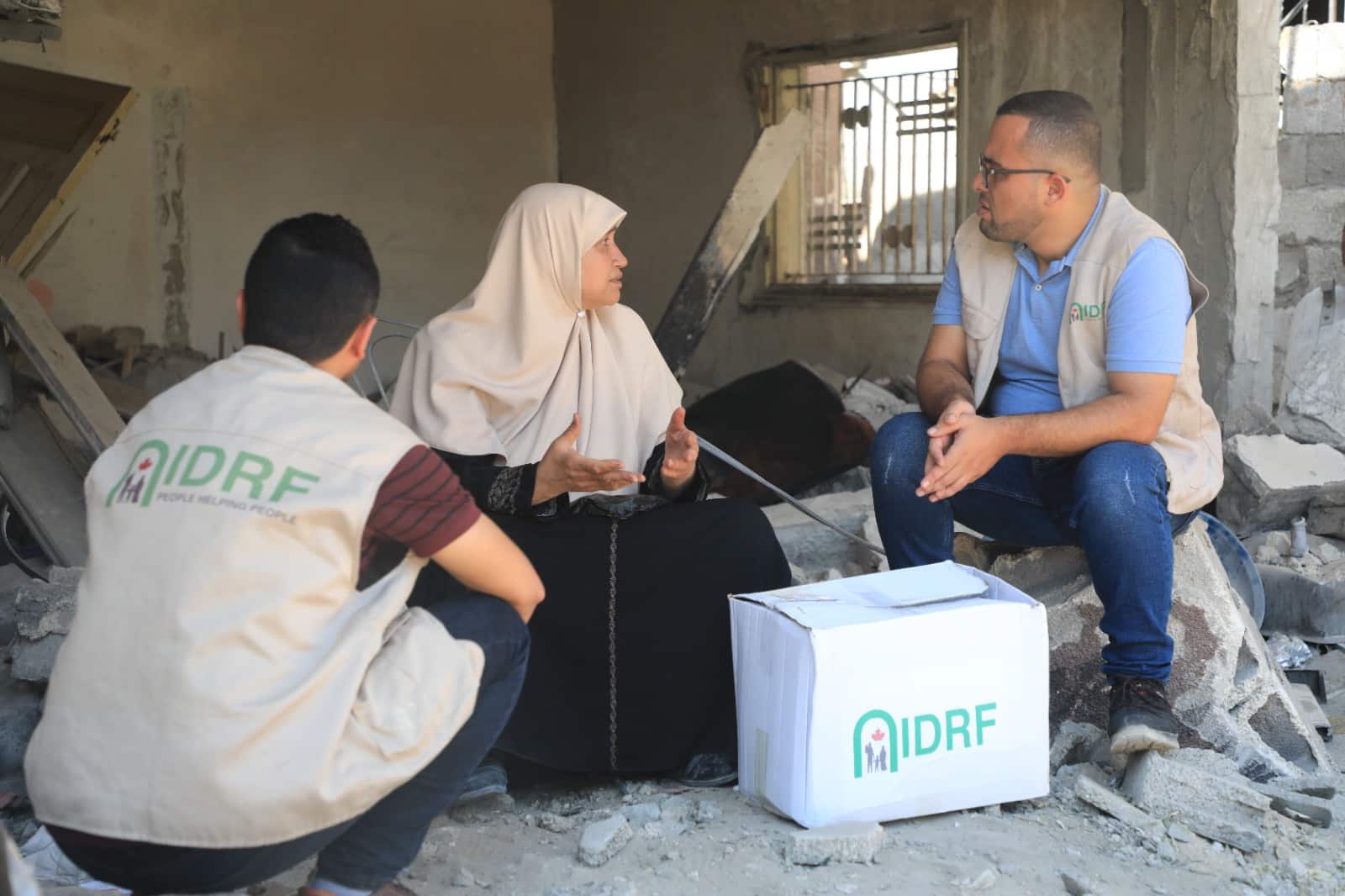People in desperate need of emergency relief
Ongoing conflict, economic stagnation and barriers to trade have long plagued Palestine with high unemployment and poverty rates, and posed serious challenges to food security, decent housing, and personal health. But the humanitarian crisis in Palestine is now near an all-time high after large-scale bombings in May 2021 followed by rocket attacks in early August of this year that injured more than 360 people, killed 44 people, and destroyed hundreds of homes in the Gaza Strip.
Furthermore, 35 health facilities were damaged during the May 2021 bombings, which has left medical facilities overwhelmed with an estimated 1.5 million people, of whom 700,000 are children, in need of emergency physical and mental health care services. A total of 331 schools and kindergartens were also damaged. In addition, reconstruction efforts previously underway in Gaza are now at risk.
Even before these attacks, the situation in Palestine was dire.
According to the UN World Food Program, nearly one-third of the Palestinian population (1.6 million people) – could not afford nutritious food in 2019, and this number has only increased since the start of Covid-19 and has been further compounded by the attacks. Sadly, many Palestinians, particularly in Gaza, lack the means to cover their basic needs including food, housing, and clothing.

Today, more than 2.1 million people in the Gaza Strip, West Bank and East Jerusalem remain vulnerable. After 15 years of land, air and sea blockade, and multiple military escalations, 4 out of 5 children in the Gaza Strip report that they live with depression, grief, and fear.
But the sad plight of Palestinians has not gone unnoticed. Many organizations have appealed to the public for help, including the International Development and Relief Foundation (IDRF) which quickly launched an Emergency Palestine and Gaza Relief campaign in response to the August attacks.
In accordance with its localized approach, IDRF immediately began visiting local hospitals and homes to conduct a needs assessment to prepare an emergency response for affected families and individuals. As a part of that response, IDRF has been distributing water, food packs and food vouchers to affected families, along with medical aid and supplies to Al-Shifa and Al-Hayfa hospitals. Assessments for home rebuilding and home reconstruction are to follow.
Due to its many years of experience in Palestine, IDRF has built a reliable network of approved local suppliers for humanitarian goods. This means their food and medical supplies are procured and stored within the territories, and the IDRF team can bring in essential goods from outside during times of shortage and around blockades. Additionally, all funds are directly transferred to the bank account of trusted IDRF teams in Palestine. Once received, the staff and volunteers of IDRF’s partner offices quickly and efficiently deliver support and supplies. There is no intermediary organization that handles these funds or directs them.
“We are asking the public to open their wallets and hearts to support our relief efforts in providing needy families with essential supplies and medical treatment,” said Mahmood Qasim, the CEO of IDRF. “We will continue to monitor events in Palestine and keep everyone updated on the situation in Gaza as it unfolds.”
People wishing to donate to IDRF’s Gaza Appeal and Emergency Relief program can do so on this website at: https://idrf.ca/project/palestine/
About IDRF:
IDRF is a Canadian registered charitable organization dedicated to empowering disadvantaged people in Canada and around the world. Founded in 1984, IDRF has an enviable reputation as one of Canada’s best-run charities and has been recognized by third-party organizations such as the Financial Post and MoneySense for its effectiveness, efficiency, and results. Find out more about IDRF’s work in its Annual Report, and follow them on Facebook, Instagram and LinkedIn.
Zeina Osman
IDRF
+1 416-497-0818
zosman@idrf.ca
